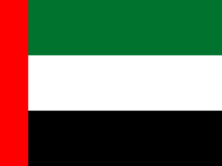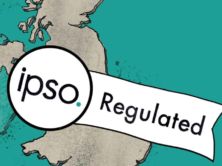
See above a screenshot from Media Ethics Platform's ethics code. (Credit: Media Ethics Platform, screenshot)
Turkey’s Media Ethics Platform developed a code of ethics specifically with guidance for online journalism, Turkish journalist Yonca Poyraz Dogan, a member of the platform, wrote recently.
As we have written, after a January 2011 workshop, a group of Turkish journalists established an ethics code and later created Media Ethics Platform to highlight ethics cases. The group sends out ethics statements on media reporting via e-mail and its website.
Dogan explained that Turkey’s Journalists Association has its own ethics code, but that Media Ethics Platform’s ethics code uniquely adds the online ethics advice. The ethics code, published here in English, mirrors the Society of Professional Journalists’ ethics code, with four main principles of “Seek truth and report it, minimize harm, act independently, be accountable.”
Concerning online media, the ethics code’ section “Ethics of Blogging: the New Frontier” advises bloggers
- to be “honest and fair,”
- to avoid plagiarism,
- to “link to sources whenever possible,” and credit sources
- to respect privacy
- to accurately represent information
- to “disclose conflicts of interest, affiliations, activities and personal agendas”
- to avoid “hate language and stereotypes”
- to contextualize
- to correct errors promptly
The ethics code does permit anonymous blogging, writing “In special cases it is acceptable for bloggers to conceal their identity and use a nickname.”
The ethics code also calls for journalists to contact “the subjects of the news story” about any “allegations of wrong doing, and highlights issues of plagiarism, fact checking, conflict of interest and the public interest. The ethics code also recommends journalists tape interviews as a safety net for fact checking and verification, as long as sources know. The code reads:
“Consider using a tape recorder for interviews to guard against potential lawsuits or denials that could undermine the credibility of the report, particularly when dealing with sensitive issues.”
Journalists are advised to be careful when “using undercover methods” and only to do so when “all traditional methods of reporting have been exhausted and have failed to reproduce information that is vital to the public.”
The ethics code also outlines various questions journalists should discuss and review when making ethics decisions related to sourcing, impartiality, plagiarism and more.
The ethics codes recommends journalists avoid using anonymous sources “unless there are special circumstances” that have been approved by superiors. Concerning anonymous sources, the ethics code notesthat
“In Turkey, it has been customary to publish stories based on anonymous sources, which often leads to manipulation of information and unproven allegations or rumors.”
The ethics code also weighs in on photojournalism ethics and advises photojournalists ensure they aren’t violating “personal privacy,” intruding on victims or altering photos to change the image outside of “technical corrections…to improve the image quality.”
Photojournalism ethics is an issue the platform has weighed in on previously, Dogan noted in her article. She wrote that the group criticized a newspaper for publishing “a huge photograph” of a woman stabbed to death “lying naked with the knife in her bloody back. Her head was turned towards the reader and her eyes wide open.” In that case, the platform called it “death pornography,” and advised “all subjects should be treated with dignity and respect,” she wrote.
Other issues addressed in the ethics code include respecting privacy and reporting on victims and avoiding “discrimination and hate speech.” For example, in a June 15 post, Media Ethics Platform criticized the newspaper Sabah‘s June 14 article for using the term “mistress” because it is “a discriminatory word.”
The code dictates “Unless it is directly related to the news, journalists should not define a person or a group by their language, faith, race, gender, sexual identity, or social class.” In this section, the code advises balancing the need to report with context and the “public good.”
We have written to Dogan for more information and will update with any response.





